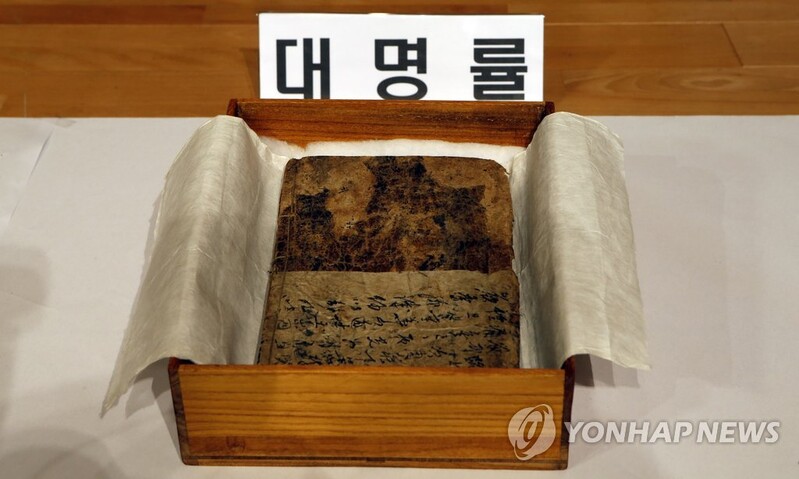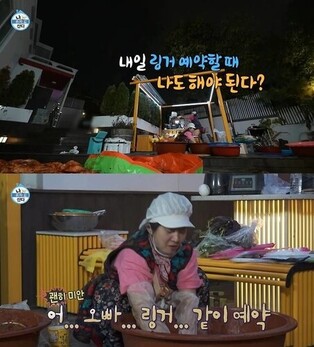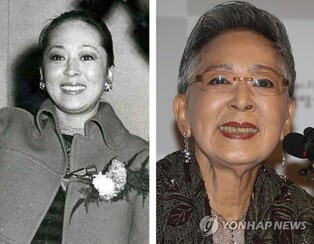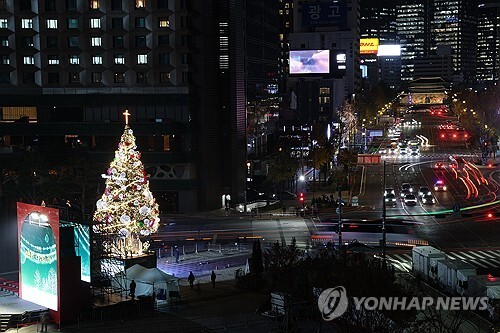 |
| ▲ This file photo shows Daemyeongnyul (The Great Ming Code) retrieved by the police in 2016. (Yonhap) |
SEOUL, Apr. 18 (Yonhap) -- Museum operators were convicted of buying 'Daemyeongnyul,' a book of legal code during the Chinese Ming Dynasty, and registering it as a designated cultural property.
The Supreme Court announced on the 18th that they had confirmed the original verdict of three years in prison to sentence A (73), who was charged with violating the Cultural Heritage Protection Act. His son B (50), who was brought on trial together, was sentenced to two and a half years in prison and four years of probation.
According to the court, the father and son who operate private museum, bought Daemyeongnyul in 15 million won (US$12,166.44) from C, who deals with stolen goods, in 2012.
Daemyeongnyul is a book of legal code which started to be published in 1367, the year before Zhu Yuanzhang of the Ming Dynasty mounted the throne, and it was completed in 1373. Joseon also brought this book and used it as a law.
Moreover, Daemyeongnyul, is an engraved and printed edition of a book revised in Ming Dynasty in 1389. This is a rare book years ahead of an edition published in 1397, which currently remains in China.
After the father and son obtained Daemyeongnyul, they went to the city hall few months later, and registered the book as a national cultural heritage, A arguing, "I received it from my late father," and Damyeongnyul was actually designated as a treasure number 1906 in 2016.
The problem is that Daemyeongnyul which A and his son bought, was stolen goods in Gyeongju, in 1998. The stolen goods dealer began to cooperate to investigation agency, when A and his son did not give the promised 10 million won (US$8,116.88) even after Daemyeongnyul was designated as a treasure, and the father and son was finally caught by the police in 2016.
The first trial sentenced 5 years and 3 years in prison respectively to A and B, explaining that "they lied about how they got Daemyeongnyul and do not seem to realize their error despite the seriousness of crime."
The second trial also convicted A and his son B. However, A's sentence was reduced to 3 years, considering that it is not that they forged Daemyeongnyul for cultural heritage registration, and that the stolen goods were kept safely without much damage.
B's sentence was suspended to probation, considering that there is no history of criminal punishment related to the Cultural Heritage Protection Act, and that his crime is less serious than his father.
They appealed against the judgment, but the Supreme Court confirmed the punishment, regarding that there are no problems in the judgment of the second trial.
(This article is translated from Korean to English by Kim Jimin.)
(END)
(C) Yonhap News Agency. All Rights Reserved























![[가요소식] 지코, 요아소비 이쿠라와 신곡](/news/data/20251212/yna1065624915953509_920_h2.jpg)










